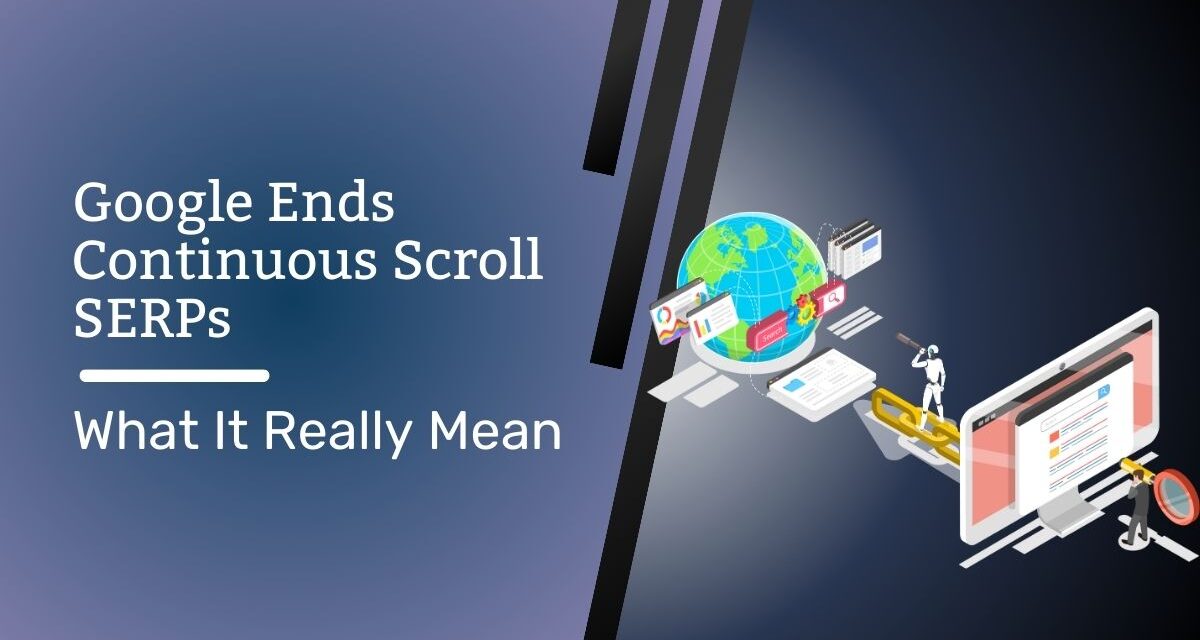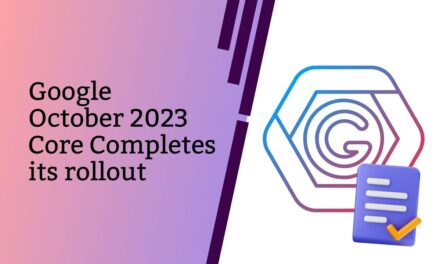Google recently announced that it will be discontinuing scroll SERPs, opting instead to return to its traditional pagination method. The explanation given by Google is that this change will speed up the delivery of search results. However, this explanation has raised skepticism and questions within the search marketing community.
Continuous Scroll in Search Results
Continuous, or infinite, scroll was popularized by social media platforms, allowing users to navigate content endlessly and engage in a state of constant discovery. This type of navigation lacks a specific endpoint and promotes aimless browsing. In 2021, Google adopted continuous scrolling for mobile search results, allowing users to see up to four pages of web results before needing to click a link for more. This change was welcomed by site owners and the search marketing community because it increased the exposure of more sites to searchers.
No More Continuous Scroll
The Verge recently reported that Google will remove continuous scrolling to improve the speed of search result delivery. This change will first be implemented in desktop search results, with mobile search results to follow. According to The Verge:
“In its place on desktop will be Google’s classic pagination bar, allowing users to jump to a specific page of search results or simply click ‘Next’ to see the next page. On mobile, a ‘More results’ button will be shown at the bottom of a search to load the next page.”
What’s the Real Impact?
While Google claims that the change aims to speed up search result delivery, many in the search marketing community doubt this reasoning. Emails released by the U.S. Department of Justice have shown Google’s top management discussing ways to increase the visibility of advertisements in search results.
Brett Tabke, founder of the Pubcon search marketing conference and the person who coined the acronym SERPs, shared his thoughts on the change:
“It effectively boxes more clicks onto page one. That will result in a higher percentage of clicks going to Ads and Google properties. I think it is more evidence that Google is on a path to a new version of portal and away from search. Organic search itself will move to page 2, and I believe eventually to a new domain.
They will move away from organic results on page one. So what is left?
- Google Ads
- Google property links
- Google Overviews vomit and
- A link to page two.
They are on a path to fulfilling all general ‘searches’ with their own responses in some form or another. When they don’t have a perfect response, maybe they will do ‘people also ask’ and those lead back to a SERP where they can fulfill the search with their own properties and responses.”
Tabke is not alone in his skepticism. Many users have expressed their doubts about Google’s motivations on social media. One tweet suggested, “I wouldn’t be shocked if it was hurting bottom-of-the-page / top of page 2+ ad clicks.” Another tweet reflected a common perception that Google increasingly shows fewer links to independent websites: “Why not just show one page with Google AI, Reddit and the usual culprits? Who clicks on page 2 anyway?” An anonymous account, “Google Honesty,” tweeted: “Continuous scroll allows everyone to be on page one. We prefer to crush your spirit. It’s far more humiliating to be on page 6. Pagination in search allows this ✅”
Good for Goose, Not for Gander?
While many see nefarious reasons for Google’s decision, some believe continuous scrolling is not always beneficial. Kevin Indig tweeted about the drawbacks of continuous scrolling: “Paginated SERPs are back! I’ve found continuous scroll to be a subpar solution for websites as well.”
Continuous scrolling works well on social media, where aimless browsing is common. However, it is less effective for other types of websites, such as e-commerce, informational sites, or search results, where purposeful navigation is more important.
In this light, Google’s chosen explanation for discontinuing continuous scrolling—that it aims to speed up search results—might be seen as less believable. However, many agree that infinite scroll can be a poor user experience outside of social media contexts. Thus, while Google’s official reasoning has faced criticism, there may be a valid argument that continuous scrolling does not fit well with the structured and purposeful nature of search results.
For more information, click here





